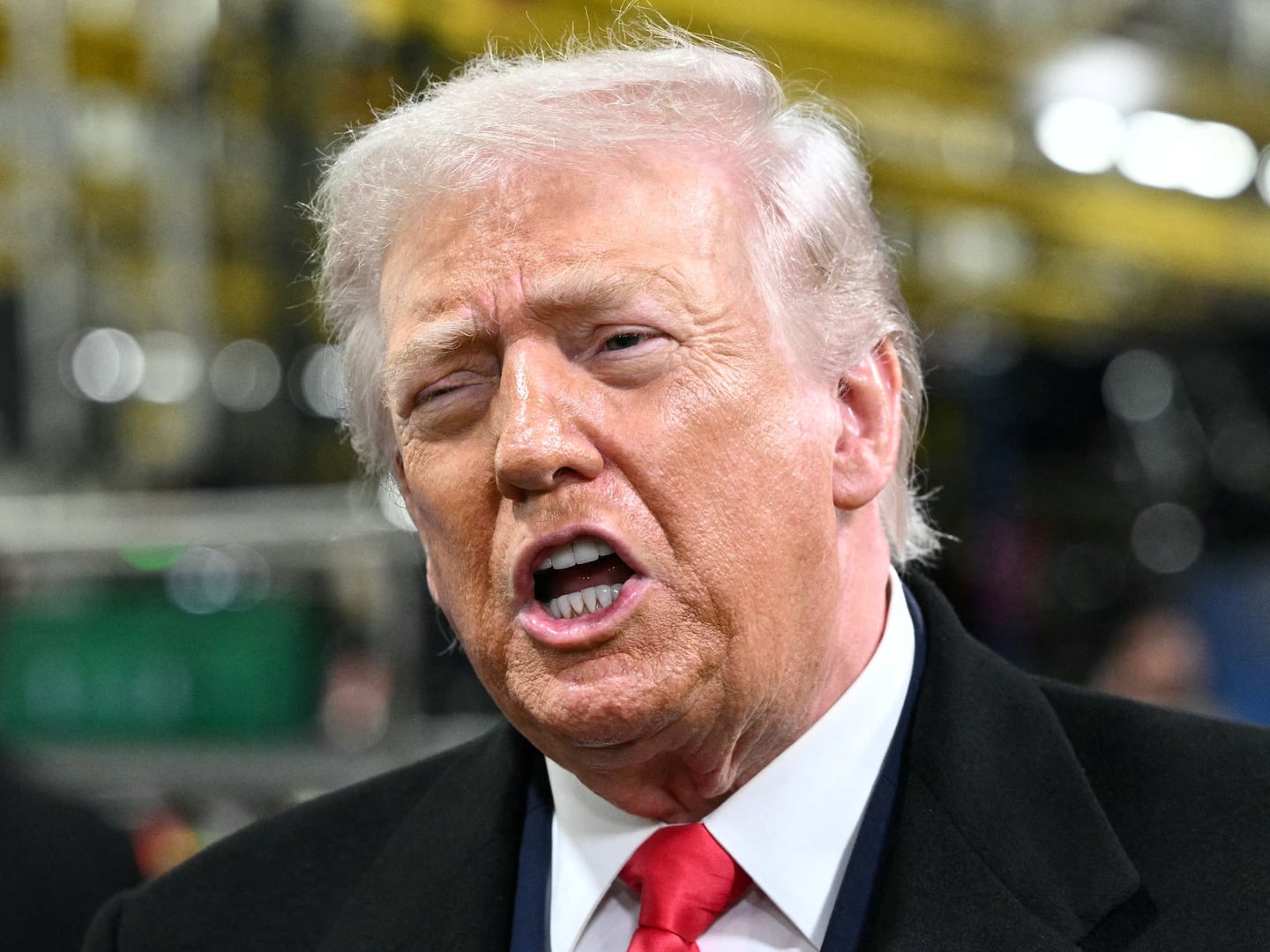When Michael Hastings’s unflattering Rolling Stone profile of Gen. Stanley McChrystal hit newsstands 18 months ago, it didn’t take long for the esteemed general to lose his job. The story described how McChrystal and his staff loathed key members of the Obama administration—and the colorful language they used to describe their superiors.
Hastings’s new book, The Operators, due out Jan. 5, details how the young journalist got unprecedented access to a usually reticent McChrystal, and how a dust cloud helped keep the story going. From heart-shaped bathtubs with Lady Gaga to Afghan election fraud, The Daily Beast read the book and pulled out the best bits.
The Rise of McChrystal
At the beginning of 2009, when President Obama first takes office, Gen. David McKiernan is the top general in Afghanistan. But, as Hastings describes, McKiernan’s superiors at the Pentagon are quickly growing displeased with the general’s willingness to accept the new administration’s plan to send fewer troops to the theater. There are other signs along the way that McKiernan is losing favor. The White House picks Karl Eikenberry to be the next ambassador to Afghanistan—specifically rejecting McKiernan’s advice that Eikenberry would rankle Afghan President Hamid Karzai. The campaign to oust the general comes from the very top. Both Defense Secretary Robert Gates and Adm. Mike Mullen, who at the time was the chairman of the Joint Chiefs, lobby the White House to install McChrystal in Afghanistan. Hastings reveals that Mullen personally flies to Kabul to persuade McKiernan to resign after a 37-year career, but McKiernan declines. Gates then tries, but is similarly rebuffed. McKiernan is fired in May 2009, less than a year after he took command, an unusual move for the Pentagon given there were no charges of wrongdoing. McChrystal takes over a month later.

Should’ve Had a Better Filter
Given the distrust the military has for the press, it is surprising to see how laissez-faire the general is with Hastings. During an interview in Paris, McChrystal says he isn’t “going to tell me [Hastings] how to write my story.” According to Hastings, the general’s press aide turns down several opportunities to set ground rules for the interviews. Throughout the weeks Hastings spent with McChrystal and his staff, they asked to go off the record only twice.
Damage Control
McChrystal’s staff eventually becomes worried that Hastings’s piece will be unflattering and tries to do damage control. On several occasions, McChrystal’s spokesman, Duncan Boothby, pulls Hastings aside to tell him the team is worried that their drunken antics in Paris won’t look good. Boothby tells Hastings to “keep our interests in mind when you’re writing the story.” Later Boothby tries to claim that the conversations in Paris—where McChrystal and his staff criticize their civilian leadership—were “sort of off the record.”
McChrystal Has a Sense of Humor
Perhaps aware that Rolling Stone could help raise his profile, McChrystal half-jokingly urges Hastings to go big with the piece. “I don’t care about the article,” the general says. “Just put me on the cover.” In one of those awkward getting-to-know-you moments, Hastings isn’t sure how to respond and says, “It’s between you and Lady Gaga, sir.” But McChrystal takes the comment in stride. “Put me in the heart-shaped bathtub with Lady Gaga,” McChrystal responds. “Maybe some rose petals. I just want to get on the cover so I can finally gain my son’s respect.”
The Ash Cloud From Heaven
Though the massive Icelandic ash cloud left travelers stranded for weeks in April 2010, it turned out to be a blessing for Hastings, who had traveled to Paris to interview McChrystal. Unable to catch his flight to D.C. for another round of interviews, Hastings winds up meeting with the general in Berlin. More drunken high jinks ensue, and Hastings grabs more fodder for his story.
Petraeus Avoids Afghanistan
There is a strong sense among McChrystal and his staff that Gen. David Petraeus, the head of Central Command who later takes over operations in Afghanistan, wants to avoid being associated with the war. After deftly orchestrating the counterinsurgency strategy in Iraq, Petraeus had risen to superstar status within the Beltway and was widely seen as a potential presidential contender come 2012. Petraeus had largely triumphed in Iraq—with McChrystal’s help running the special-operations show—but many speculated that he believed the war in Afghanistan was a loser and was happy to let McChrystal take the fall. “He couldn’t command this,” McChrystal tells Hastings. “Plus, he’s one and ‘oh.’ This one is very questionable.”
Election Fraud
It’s not a secret that American officials were concerned about potential Afghan election fraud in August 2009, and that U.N. officials tried to keep their concerns quiet. But Hastings reveals quite a few details about the fallout between Kai Eide, the U.N.’s special representative in Afghanistan, and his American deputy, Peter Galbraith. Their relationship was complicated, given that Eide had introduced Galbraith to his wife. Galbraith finds about 1,200 polling sites that exist only on paper, but Eide stops him from pursuing the matter. On election night, several provinces report voter turnout well above 100 percent. Galbraith and Richard Holbrooke, the U.S. special envoy, feel the elections are tainted and try to confront Karzai. But Eide tips off the Afghan president, who gives the Americans an earful during a meeting a week later before they have a chance to address the voting irregularities. The results stand.
McChrystal the Cadet
McChrystal graduated from West Point in 1976, leaving his mark on the institution in both an entertaining and a subversive way. The general, who became known for his work ethic, had moments as a student that seem like something out of Animal House. Hastings unearths stories from classmates who remember finding McChrystal passed out in a shower after drinking a case of beer. He also leads a raid on Grant Hall, a building on campus that housed young women visiting cadets. McChrystal and his cohorts “borrow” guns from the campus museum and storm the hall in full commando gear. But perhaps most interesting is his turn as the managing editor of The Pointer, the academy’s literary magazine. McChrystal writes seven short stories for the mag, including one about a man who tries to assassinate the president.
Karzai’s Cold
Early on, it was important for McChrystal to get Karzai’s backing for major military operations. Before he launches the Marja offensive in February 2010, McChrystal tries to get the Afghan president on the phone to approve the mission. There’s a 90-minute window to get things rolling, but Karzai isn't available. He’s taking a nap because he has a cold, and his assistants refuse to wake him up. McChrystal has to drive to Karzai’s residence to get an answer from him.
Conflicted
We have to take Hastings’s word for it, but he writes that he was conflicted about publishing the McChrystal article. Hastings says a part of him felt compelled to compose a story that McChrystal and his staff would like. They had spent several weeks together, and he found their time together exciting. Hastings worried that he would be cutting off his unprecedented access and that McChrystal’s assistants would go after him personally. In the end, Hastings went forward because he didn’t feel he could bury the piece.





